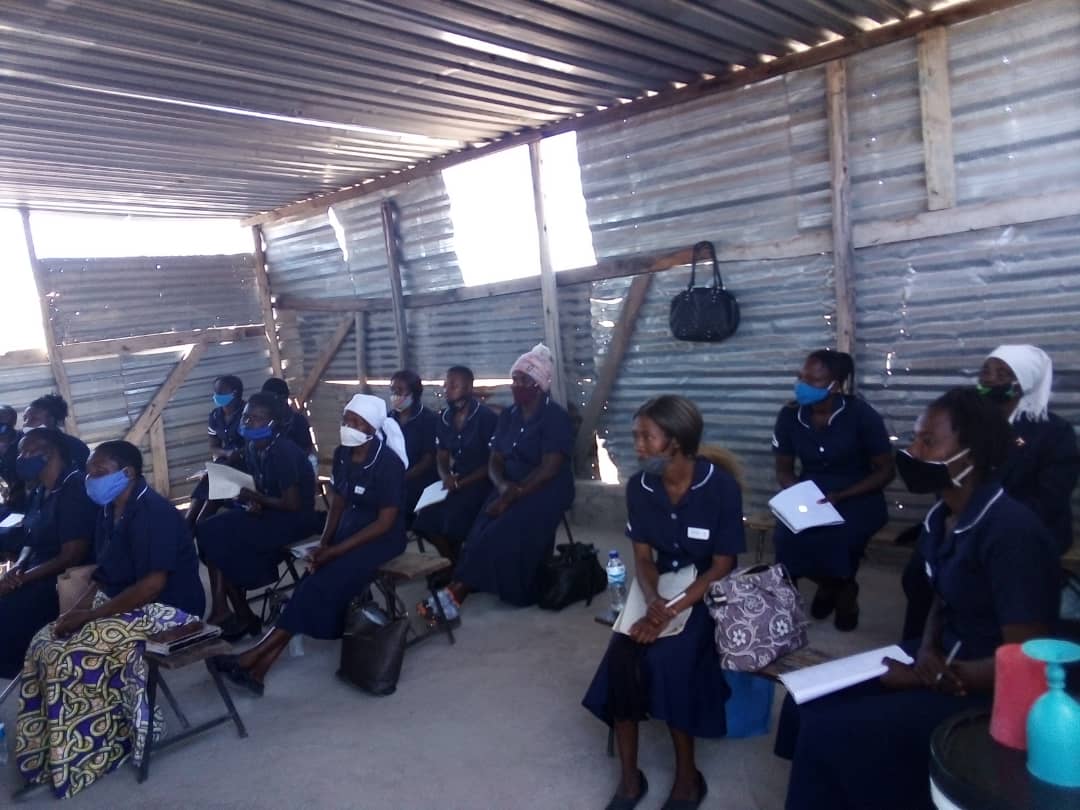Charity Mafa (not her real name) from Budiriro 2 in Harare falls into labour and is rushed to the Glenview Poly Clinic, one of the 15 City of Harare run clinics that have remained open as most were closed due to operational constraints and the COVID-19-induced lockdown.
“When I arrived at the Glenview Poly Clinic, I was admitted for monitoring and observation. When the labour pains intensified, I asked the nurses to help me to be inducted into labour or put on a drip because the baby was not pushing because the cervix was not opening.
“The nurses refused to follow any of my suggestions. Sensing imminent danger, I phoned an ambulance since I am on medical aid and was transferred to Sally Mugabe (formerly Harare) Central Hospital. Upon arrival, I was put on the drip and immediately went into labour. I was blessed with a bouncing baby boy,” Mafa said.
Mafa said prior to this day, about seven babies had lost their lives during delivery at the same hospital.
The ZimFact reports that Zimstat’s 2015 Zimbabwe Demographic Health Survey (ZDHS) puts the maternal mortality rate at 651 deaths out of 100000 live births in the seven years preceding the survey (2008-2015). The fact-checking ZimFact says the figure was down from 960 deaths out of 100000 live births reported in the 2010-2011 ZDHS, for the 2003-2011 period. The 2005-2006 ZDHS puts the maternal mortality rate for the 1998-2005 period at 612 deaths for every 100000 live births.
Such high maternal mortality is partly attributed to the shortage of midwives in the country owing to the brain drain as health practitioners seek greener pastures out of Zimbabwe.
On the other hand, the government had frozen the employment of more nurses citing financial constraints as employment is said to gobble more than 90 percent of the state revenue.
The high maternity costs in most private and public hospitals have seen a spike in maternal mortality rates especially from the onset of COVID-19-induced lockdown in March.
This situation prompted the establishment of the Women in Action Traditional Birth Attendants (TBAs). The Women in Action TBAs was set up in 2003 by Mrs Melody Nyakudanga after seeing the plight of women failing to access affordable maternal healthcare.
Tsitsi Machingauta a member of Soroptimist International Harare, has been advocating and lobbying for changing and assisting the TBAs with all the necessary equipment and tools they require to ensure safe delivery.
These birth attendants are the only option for thousands of expectant mothers unable to afford a hospital in the high-density suburbs of Harare, especially Epworth.
Tsitsi Machingauta is a gender champion with the Dutch Embassy in Harare.
Machingauta has facilitated skills training for the expectant mothers, given them a platform to sell and access new markets through the women’s showcase markets.
“The TBAs are made up of 60 women who support women and girls in Epworth. The TBAs support the local community by providing safe home deliveries. In Epworth, many women and girls are not able to access affordable safe maternity services. As a result, many women rely on traditional birth attendants to ensure safe deliveries. Since 2003 the TBAs have delivered over 47,000 babies and during the lockdown of 2020 in a six-month period, TBAs have delivered over 2000 babies,” Machingauta said.
Traditional birth attendants are registered with the Ministry of Health and Child Welfare under the Traditional Medical Practitioners Council.
“These traditional birth attendants are skilled and qualified practitioners. The traditional birth attendants are looking forward to raising funds to build a 100-bed maternity hospital in Epworth. This facility will transform the landscape of the airport area by creating jobs. The hospital will also have a skills training center with a health education unit that will ensure that women and girls have freedom of choice and understand the options that are available with regards to family planning and contraceptives,” Machingauta added.
There are also intentions to have a counseling unit that will help to support young women and girls who have been abused as well as a safe house.
There are many factors that contribute to the socio-economic status of Epworth. The community has a disproportionate number of girls involved in early child marriages. The women in action TBA have been supported by Soroptimist International Harare Club and Population Services international.
Since March 2020, the traditional birth attendants have been having an average of three deliveries per day.
“This level of deliveries is unprecedented. This increase is due to the strikes and closure of clinics and hospitals in Harare. The traditional birth attendants are in constant need of buckets, surgical blades, umbilical cord clamps, gloves, bleach, cotton wool, baby clothes, towels, sheets, solar lamps to ensure a safe home delivery.”
The TBAs ensure that young mothers have a place to leave their children while they go to work. This ensures that mothers can take care of themselves and their babies. The traditional birth attendants do this at no cost to the mothers to ensure that these children have a bright future. They provide daycare and child care. The Creche serves as a play centre within the community and a safe space for the children to be during the day.
According to Itai Rusike, the Executive Director of the Community Working Group on Health (CWGH), maternal mortality rates in Zimbabwe remain unacceptably high.
“The situation has been exacerbated by the Covid-19 disruptions to our public health delivery services; the general poor funding; and the strike actions by nurses and doctors.
“Apart from the general inputs that all people need for health, women also need services to support safe reproductive health, prevention of mother to child transmission of infections such as HIV, child delivery and care, including their nutrition during pregnancy.
“As assisted deliveries are key to improving maternal health outcomes, ensuring access to these services to an adequate and affordable quality in all districts would seem to be a priority,” Rusike said.
He added that the reduced access to or use of skilled midwives within districts adds a cost burden or barrier to service uptake for women, indicating the need to improve the quality of maternity services especially in peri-urban areas.
“Further when facilities do not have Waiting Mothers Shelters, mothers may be discouraged from attending services by the costs of staying in the facility while they wait for the delivery, or the absence of a place for them to stay.
“The delay in seeking help for pregnant women has been noted to be a major issue hence there is a need to strengthen MNCH activities including engagement of community leadership and strengthening health education at the facility level.”
Most urban local authorities are still charging user fees for maternity services at their clinics despite the existing government policy that exempts payment of user fees for pregnant women.
“The government should provide health grants to the urban local authorities so that they can fully implement the free user fee policy for pregnant women and also avoid collapsing the clinics as they are depending on the user fees paid by the women,” Rusike added.






